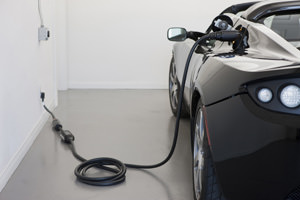How Clean Are Electric Cars? Depends on the State
With high-profile deals, expanding infrastructure and a growing list of models, the electric car is finally arriving, but, as they say, your mileage may vary. Charge that Tesla Roadster in Georgia, where they burn coal to power the grid, and you may as well be driving a Prius.
With high-profile deals, expanding infrastructure and a growing list of models, the electric car is finally arriving, but, as they say, your mileage may vary. Charge that Tesla Roadster in Georgia, where they burn coal to power the grid, and you may as well be driving a Prius.
Still, even the dirtiest power plant is generally more efficient than the internal combustion engine. — PZS
Your support matters…San Francisco Chronicle:
The amount of greenhouse gas emissions saved by electric cars varies widely from state to state. California’s grid is relatively carbon-free, drawing 14.4 percent of its electricity in 2008 from nuclear plants, 11 percent from large hydroelectric dams and 10.6 percent from renewable sources such as geothermal plants and wind farms, according to the California Energy Commission. More than 45 percent of the state’s electricity comes from burning natural gas, which produces less carbon dioxide than coal.
Many states in the Midwest or Southeast, however, rely heavily on coal. There, electric cars will still produce fewer emissions than gasoline vehicles, but the difference won’t be as great.
“A Tesla in Georgia would give you about the same greenhouse gas emissions as a good Prius,” Hwang said, referring to Toyota’s popular hybrid car. “You’re not going backward, but you’re only doing as well as a Prius.”
Independent journalism is under threat and overshadowed by heavily funded mainstream media.
You can help level the playing field. Become a member.
Your tax-deductible contribution keeps us digging beneath the headlines to give you thought-provoking, investigative reporting and analysis that unearths what's really happening- without compromise.
Give today to support our courageous, independent journalists.






You need to be a supporter to comment.
There are currently no responses to this article.
Be the first to respond.